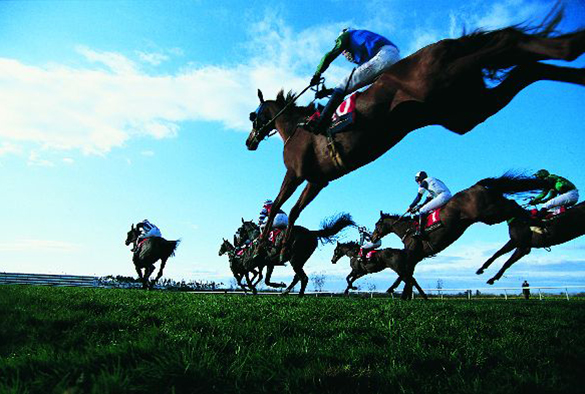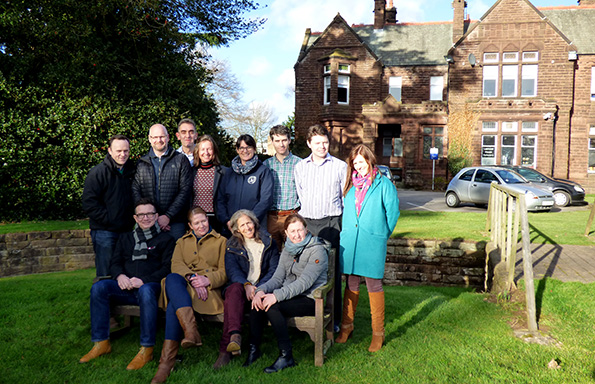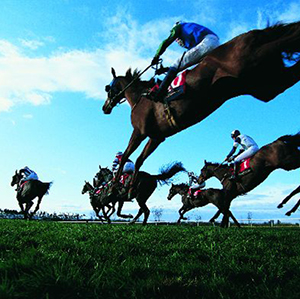Equine Welfare module led by Liverpool's Grand National vet
Published on

The vet responsible for immediate trackside veterinary care at the Aintree Grand National will lead the new Equine Welfare module as part of the University of Liverpool’s Thoroughbred Horseracing Industries MBA (THIMBA).
Dr Ellen Singer, Senior Lecturer in Equine Orthopaedics, treated 2015 favourite, Balthazar King at the University’s Philip Leverhulme Equine Hospital after the 11-year-old favourite was severely injured going down at the Canal Turn.
He fractured four of his ribs and suffered a punctured lung, and was rushed by horse ambulance, following initial evaluation at Aintree, to the Equine Hospital – part of the University’s Leahurst Campus in Wirral – where, thanks to Dr Singer and the Internal Medical Group’s expertise, he was able to recover.
Equally important
Dr Singer, who has vast experience in the horse-racing industry, said: “It is essential that each racehorse under our care is considered equally important.”
This is the message that will be passed on to the inaugural THIMBA cohort of part-time students, the majority of whom are senior managers working for major employers across the industry, including The British Racing School, Jockey Club Racecourses, Ayr Racecourse, The Injured Jockeys Fund, Kambi Sports and the British Horseracing Authority.
The Equine Welfare module will become an essential component of the THIMBA programme, which is designed for those who want to develop leadership and management skills and enhance their career prospects in the industry. Run in partnership with the British Horseracing Authority and the Horserace Betting Levy Board, it is the only MBA in the world which focuses on the specialised needs of the British and global horseracing industry.

Neil Coster is THIMBA Director, he said: “The goal of the Equine Welfare module is to keep the horse as a central and important feature of the industry and to ensure that horse welfare is discussed and considered at every step.
“This is important for the horse mostly, but it is also essential for the image of the racing industry both nationally and internationally.”
Dr Ellen Singer said “People working within the industry are the custodians of the horse, as it is the horse’s athletic ability that provides the industry with its great and broad appeal.
“We are morally obliged to insist and ensure that the welfare of the horse always comes first.
Special challenge
“Organising and designing this module has provided the special challenge of figuring out how best to educate non-veterinary surgeons about the important issue of horse welfare in the racing industry.
“I am looking forward to discussions with students and invited speakers, and to pressing the message of the importance of horse welfare.”
The Equine Welfare module begins on February 23. THIMBA students also take specialist modules covering marketing, advertising, sponsorship, event management, bloodstock business management and other veterinary issues, alongside studying traditional MBA content.
Time is divided between the University’s city campus and Leahurst campus; the latter boasting world class equine facilities. Students also have the opportunity to undertake industry placements and visits to racecourses, studs, training facilities, media companies and companies in the betting industry, with trips to Haydock and Newmarket included.
This module supports the horse-racing industry's The Horse Comes First campaign, to find out more please visit www.thehorsecomesfirst.com
For more information about all aspects of the course visit www.liverpool.ac.uk/horseracingmba/ or email Neil Coster on neilc@liv.ac.uk
